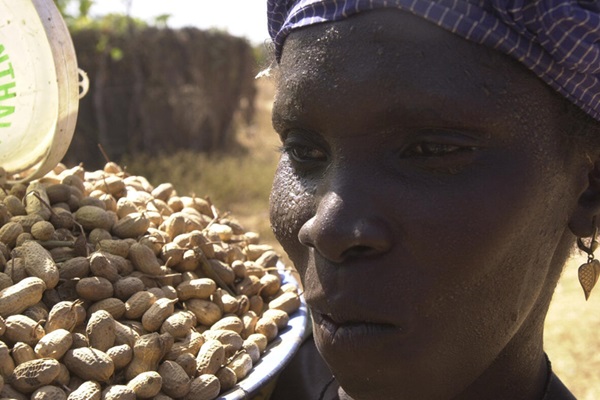Agrifood systems face complex and unprecedented challenges related to climate change, biodiversity loss, migration, conflict, economic instabilities, and COVID-19. Inequality of income is growing, and many rural inhabitants live in poverty or extreme poverty.
The world is not on track to achieve zero hunger by 2030. FAO believes that Science, Technology and Innovation (STI) can accelerate the transformation of agrifood systems so that they become MORE efficient, inclusive, resilient, and sustainable, agrifood systems for better production, better nutrition, a better environment, and a better life, leaving no one behind.
Latest

News
Gender equality in science and innovation is critical for agrifood system transformation
12/02/2026
Around the world, women represent only one‑third of researchers and about 35 percent of STEM (Science, Technology, Engineering, and Mathematics) graduates,...

Event
Africa Conference on Sustainable Agricultural Mechanization
Organized by FAO in collaboration with the Government of the United Republic of Tanzania, the Africa Conference on Sustainable Agricultural Mechanization provides a neutral space to engage in open dialogue, exchange experiences and explore new pathways for accelerating sustainable agricultural mechanization.
Register here

Publications
Action Plan 2026–2029 for the implementation of the FAO Science and Innovation Strategy
2026
The Action Plan 2026-2029 for the implementation of the FAO Science and Innovation Strategy guides the implementation of the FAO Science and Innovation...

Publications
Highlights of science and innovation in FAO’s work
2026
The Highlights of science and innovation in FAO’s Work report was developed to illustrate the breadth and depth of science and innovation in FAO’s efforts....

Blog
Nourishing Humanity's Digital Future: AI Ethics in Agrifood Systems
19/11/2025
The FAO Science and Innovation Strategy is grounded in seven guiding principles, one of which is ethics-based. In this context, Mr. Amandeep Singh Gill, USG Special Envoy on Technology shared this insightful blog on ethics in Artificial Intelligence.

Blog
Ensuring a risk-informed approach to science and innovation
15/09/2025
Science and innovation can help address the complex social, economic and environmental challenges of agrifood systems. Nonetheless, science can be a risky business, with new technologies and innovations potentially posing risks and unintended consequences.
Key messages
FAO’s role in science, technology and innovation
FAO contributes to strengthening the link between science, research and development and does contribute to science (for example, through its work on data) and develops innovations (for example, institutional innovations such as Codex Alimentarius, social innovations such as Farmer Field Schools and technological innovations such as the geospatial platform of the Hand-in-Hand Initiative).FAO translates the science and innovation that is developed by other actors into practical tools and policy guidance for development. FAO provides support to countries on innovative practices, approaches, methodologies and tools. It also supports science-driven innovative processes, platforms, and multi-stakeholder mechanisms.
Due to its unique position as a specialized agency of the UN and facilitator of intergovernmental processes, FAO is well-positioned to connect technical, development and financial partners, policymakers, producers, scientists and innovators, in all sectors of agrifood systems through a shared global agenda. FAO’s Governing and Statutory Bodies provide an interface for science and policy. FAO is uniquely placed to convene all agrifood systems actors to discuss and debate contentious scientific issues, including prevailing power asymmetries and socioeconomic inequalities. FAO is also uniquely placed to support its Members in strengthening national policy frameworks for enhanced science and innovation, identifying research priorities at regional and global levels and communicating them to the major research institutions.

Technology
Technology is an instrumental part of the package of solutions needed to transform agrifood systems, and the development and diffusion of new technologies and associated knowledge, can be a powerful driver of sustainable development.
Read more
Innovation
Innovation is a central driving force for achieving a world free from hunger and malnutrition. Technological, social, policy, institutional, and financial innovations are key to transforming agrifood systems.
Read moreScience, technology and innovation and the SDGs
Science, technology and innovation are at the heart of the 2030 Agenda for Sustainable Development and appear in numerous Sustainable Development Goals (SDGs) targets.
Several agrifood systems-related SDG targets address technology (SDG2a, SDG 6a and SDG14a for agriculture and rural infrastructure, water use, and marine technology respectively). Other SDGs include targets on technology related to energy, women’s empowerment, infrastructure and industrialization, and means of implementation (including partnerships).
Innovation is included in relation to economic productivity, decent job creation, industrial development and capacities of developing countries.
Science (with technology and innovation) is recognized as a key means of implementation of SDGs. The 2030 Agenda's Technology Facilitation Mechanism (TFM) and its UN Interagency Task Team on Science, Technology and Innovation (IATT), in which FAO is an active member, provides a multistakeholder cooperation mechanism to promote coordination within the UN system.

















-marketing-manager-of-the-mar%C3%ADa-de-la-altagracia-association-and-anacleta-jim%C3%A9nez-(right)-president-of-jaguamocha-women-association.jpg?sfvrsn=4f3f9c99_7)

